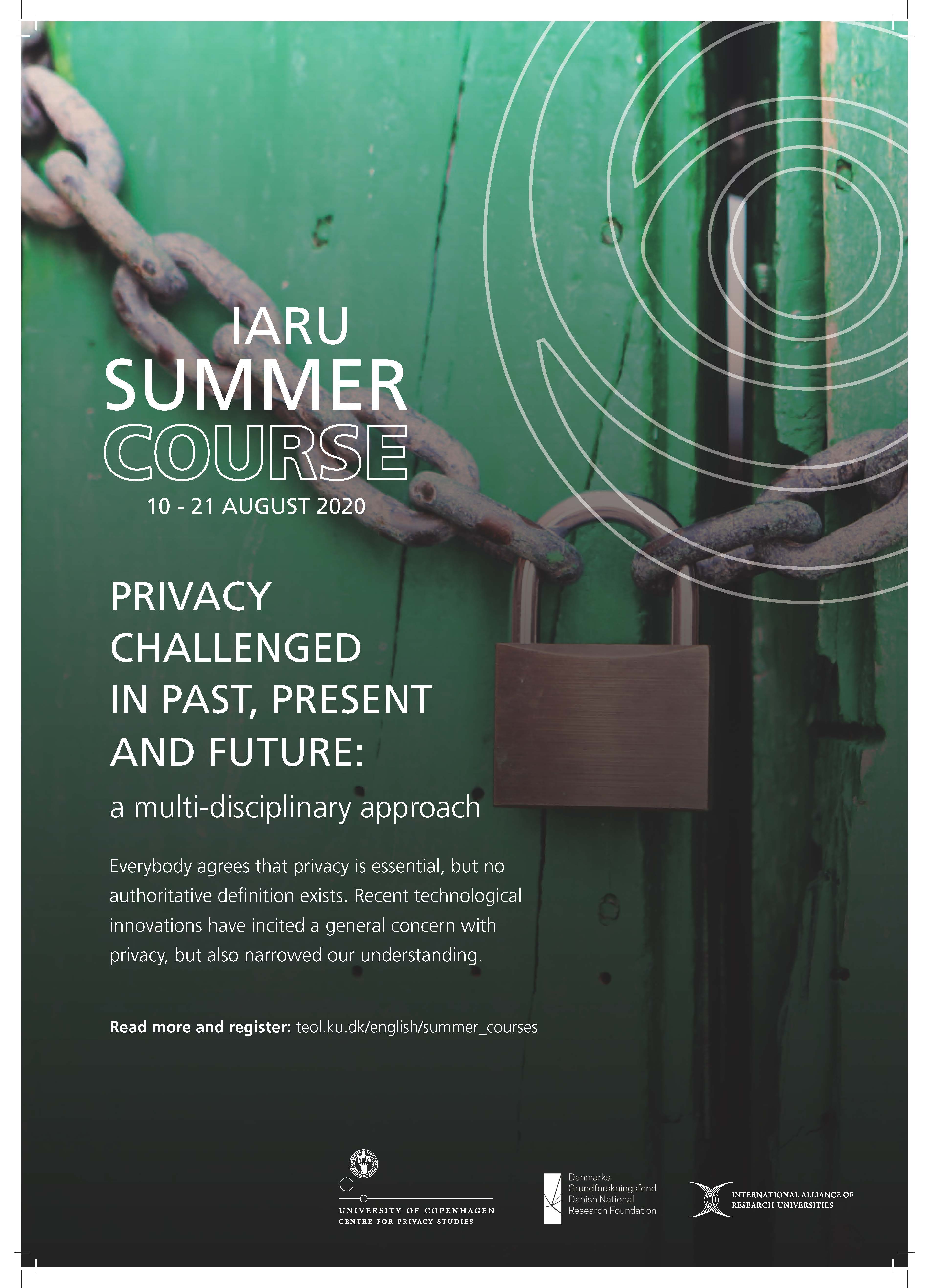PRIVACY SUMMER SCHOOL ONLINE

PRIVACY SUMMER SCHOOL ONLINE 2020
10-21 August 2020
Classes: Monday-Friday: synchronous modules will be planned when we know the students' time zones
Room: The UCPH intranet / Zoom
7,5 ECTS credits
Course Instructors: Mette Birkedal Bruun, Professor of Church History and Director of the Centre for Privacy Studies (PRIVACY), dr.theol. in Church History, University of Copenhagen (2017), PhD in Church History, University of Aarhus (2000); Peter Thule Kristensen, dr.phil., Professor of Architecture at the Royal Danish Academy of Fine Arts School of Architecture and core scholar at the Centre for Privacy Studies; researchers from the Centre for Privacy Studies as well as scholars from the University of Copenhagen, the University of Southern Denmark and the IT University, Copenhagen.
Academic coordinator: Dr. Dustin Neighbors, Centre for Privacy Studies, dmn@teol.ku.dk
Everybody agrees that privacy is essential, but no authoritative definition exists. Notions of privacy and the private concern the confrontation between individuals and their surroundings and the explicit and implicit boundaries that are drawn in this context. Recent technological innovations have incited a general concern with privacy, but also narrowed our understanding. We associate privacy with data protection and consider it as a value that is relevant only for our age. Privacy, however, has deep historical roots. When we study privacy across the gap between past and present, we gain a better sense of the rich and complex implications of the evasive term ‘private’ which contrasts not only ‘public’, but also ‘professional’, ‘common’ and ‘evident’. A multi-perspectival view shows how notions of privacy past and present shape and are shaped by a broad range of societal factors. An integrated examination of historical and contemporary notions of privacy and the private help us to see our own time in a novel light. Finally, the corona crisis adds yet another dimension to both past and present perspectives.
Delivery method and learning outcome
The summer school is taught online in combination of synchronous and achronous modules. Classes include uploaded lectures, discussions and group work. The students will learn analytical skills suited to a broad range of materials; be trained to work across different periods and societal contexts; and, finally, experience an open and inquisitive scholarly atmosphere.
Requirements
The course aims at BA and MA students. You must have completed 120 ECTS points before the summer course begins.
Undergraduate requirements: Active class attendance (75% attendance). Active course participation is a prerequisite for writing the exam paper. Familiarity with a reading list (primary and secondary literature) of 600-750 pages. A written paper of 16,800–21,600 characters approx. 7–9 pages (formally, 2400 characters per page, including spaces), based on 250–300 pages.
Master requirements: Active class attendance (75% attendance). Active course participation is a prerequisite for writing the exam paper. Familiarity with a reading list (primary and secondary literature) of 600-750 pages. A written paper of 19,200–24,000 characters approx. 8–10 pages (formally, 2400 characters per page, including spaces), based on 450–600 pages.
Assessment: Danish 7-point grading scale and ECTS letter grading scale.
Final Paper due 15 September 2020.
Experiences of the course
This course was first offered in summer 2019. Read our feature about the first run of the course published in September 2019:Privacy Summer School Revisited ‘Either you get dizzy, or you enjoy the roller coaster ride’
